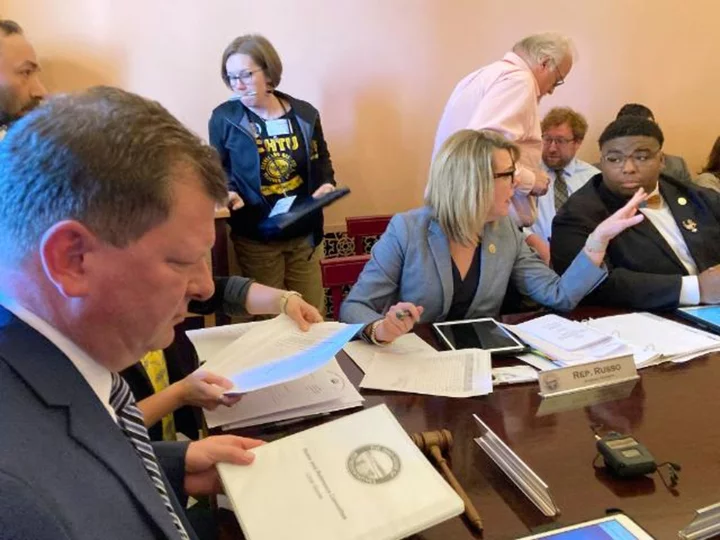Ohio voters will decide this summer whether to make it more difficult to change the state's constitution -- only months before a potential ballot measure in November over whether to guarantee abortion rights in the state.
Ohio's Republican-controlled legislature this week approved a resolution that will ask voters in August to increase the threshold needed to change the constitution from a simple majority to 60%. It also would require backers of ballot initiatives to get signatures from voters in all of Ohio's 88 counties -- rather than current 44 -- to place something on the ballot.
Voters also could decide to eliminate the 10-day period during which citizen groups are currently allowed to gather additional voter signatures if their petitions are found to lack the required amount of valid signatures.
The special election will be held August 8. The election measure passed in the form of a joint resolution and does not require the governor's signature to take effect.
The move comes after abortion rights supporters in the state won approval to begin collecting signatures to put a measure on the November ballot that would guarantee Ohioans' access to abortion. If approved by voters, state officials could not prohibit abortion until after fetal viability, the point at which doctors say the fetus can survive outside the womb.
Critics of the August special election say it amounts to an end-run around voters and is part of a broader campaign by opponents of abortion to thwart citizen-approved ballot measures enshrining abortion rights.
The US Supreme Court's decision to overturn Roe v. Wade last year left abortion laws up to the states, and abortion rights groups quickly scored wins on ballot measures in six of them -- including in the battleground state of Michigan, where voters protected abortion access, and in the Republican strongholds of Kansas, Kentucky and Montana, where voters defeated efforts to restrict abortions.
In Ohio, a state "fetal heartbeat" law that prohibits many abortions as early as six weeks into pregnancy took effect when the US Supreme Court struck down Roe with its decision last June in Dobbs v. Jackson Women's Health Organization. But the law has been put on hold by a judge in Cincinnati.
"These politicians know that their radical views on abortion care can't win a fair vote, so they're rigging the system," Kellie Copeland, spokesperson for Ohioans for Reproductive Freedom, said in a statement about the August special election.
The group is pushing the November abortion-rights initiative.
Supporters say the threshold should be raised to make it harder for deep-pocketed interest groups to push through changes to the constitution through the initiative process.
The main sponsor of the effort to change the ballot initiative rules, Republican state Rep. Brian Stewart, did not immediately respond to a CNN interview request Thursday.
He has pushed back on claims that increasing the threshold unfairly changes election ground rules.
"If any outside group believes its ideas are worthy of inclusion in Ohio's constitution, then they should be able to earn the widespread public support that a 60% vote margin will require," Stewart said during floor debate Wednesday.
Unions, abortion rights groups and voting rights activists have formed a coalition, called Vote No in August, to oppose raising the initiative threshold.









